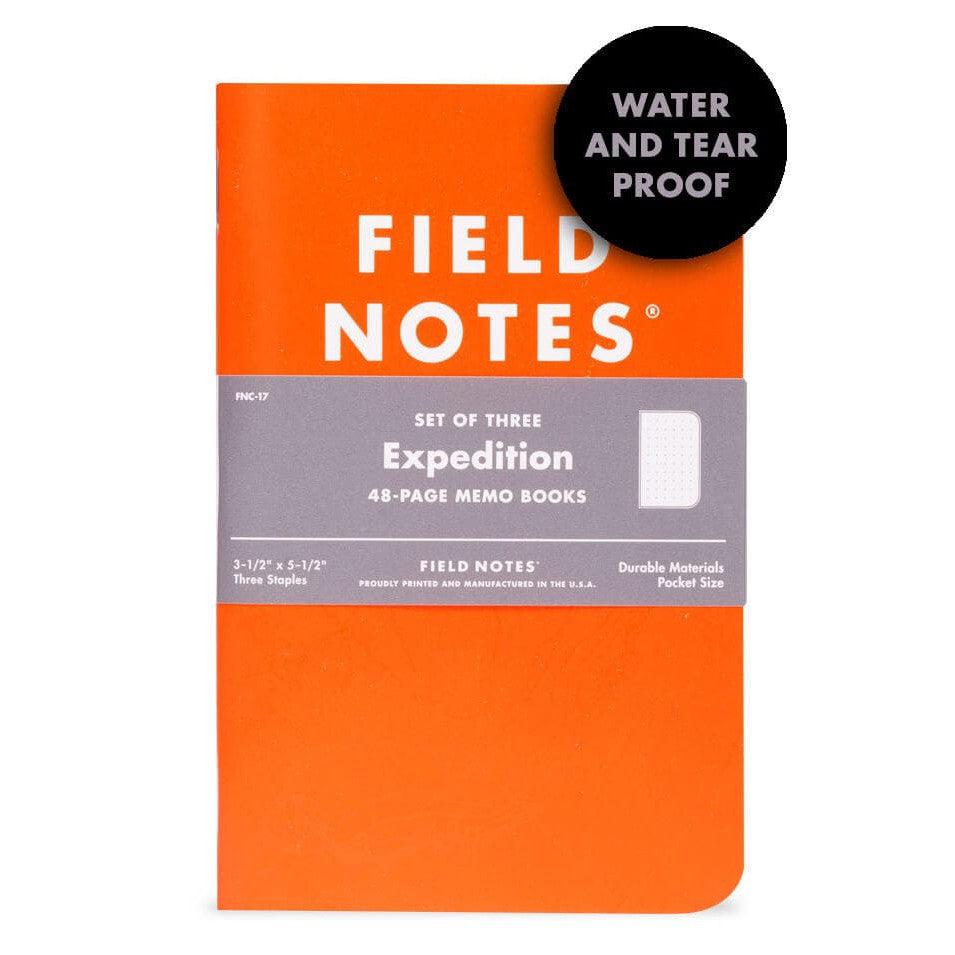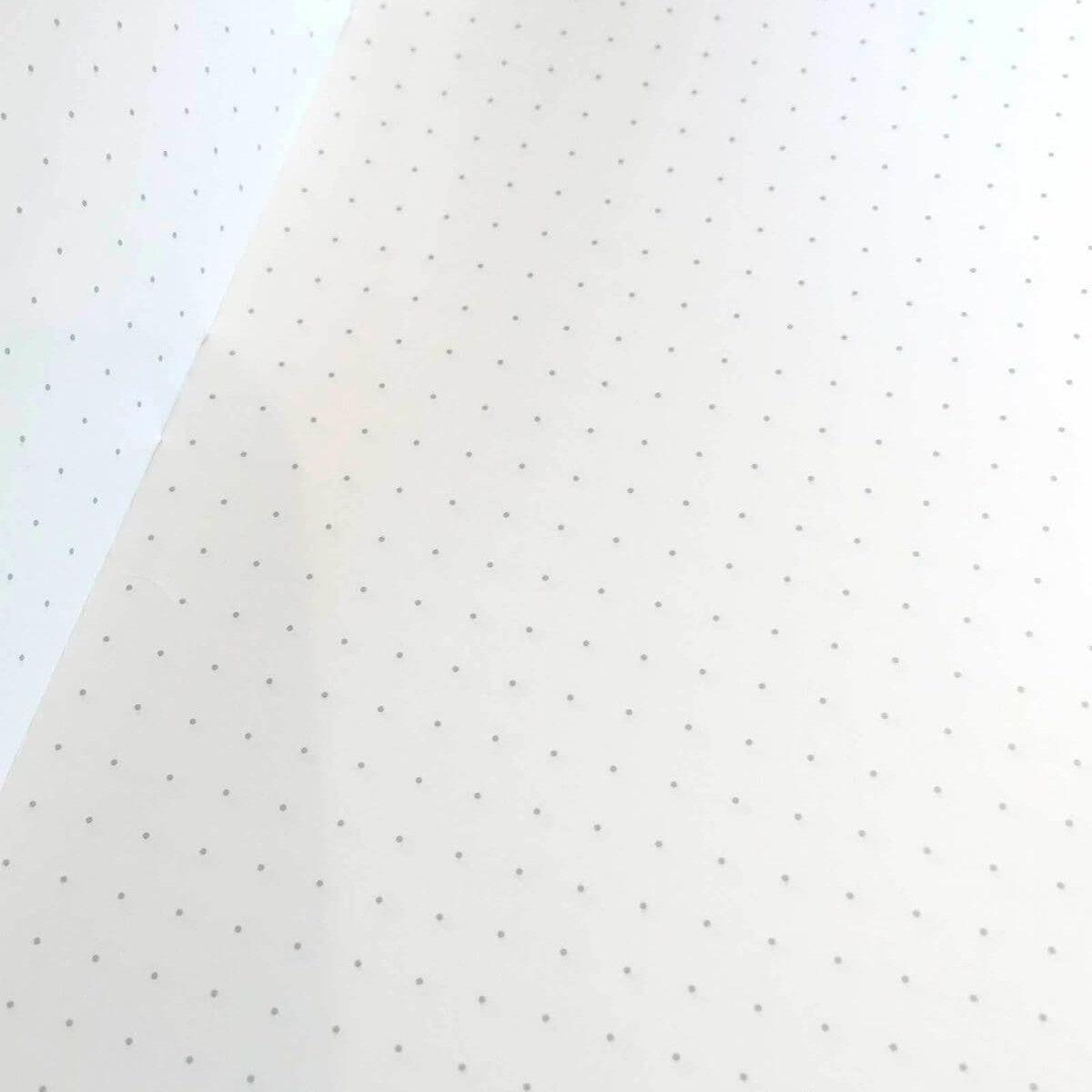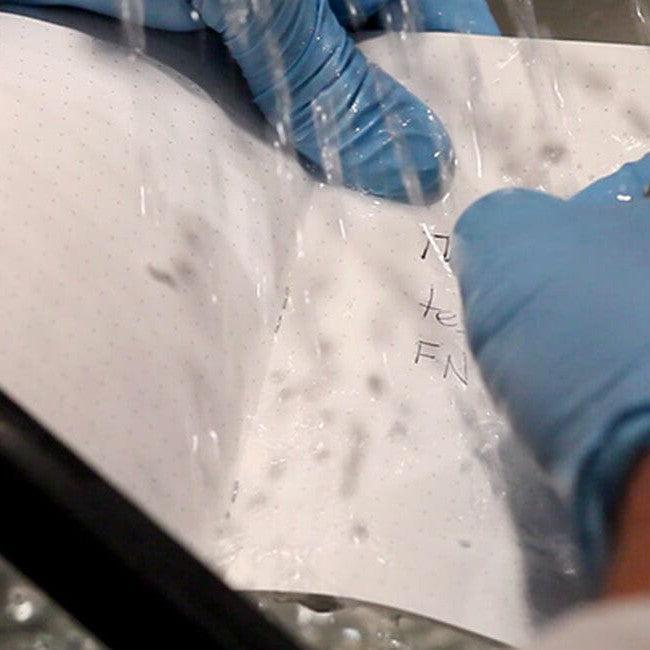Description
FNC-17 marked the start of our fifth year of Quarterly Editions. In that time, we had explored a wide variety of papers, colors, and printing techniques, but with this new Expedition edition, for the first time, we actually expanded the type of paper used in our notebooks.
Aesthetically, you’ll find a design with plenty to like: a hi-visibility “Antarctic Survey Orange” front cover and “Polar Night Black” back cover, with a subtle varnish effect featuring a topographic map of Antarctica. The body pages feature our popular dot-graph paper printed in light gray.
But the real innovation here is the paper. It’s maybe not even fair to call it paper. The whole book is printed on Yupo Synthetic paper, an amazing tearproof and waterproof paper extruded from polypropylene pellets in Chesapeake, Virginia.
Months of development and testing were required to get these books just right, and we’d like to thank Yupo for their extensive support, as well as the great printers and ink technicians that pitched in to help.
The majority of our customers may not test the limits of these notebooks, but the map of Antarctica is neither hyperbole nor coincidence. We sent the Expedition edition to the South Pole with explorer Ben Saunders back in October 2013 as he and his team retraced Captain Robert Falcon Scott’s ill-fated journey to the Pole and back, on foot and unsupported.
Note: Synthetic paper is nonporous and does not absorb ink like our conventional papers. Ballpoint pens, pencils, or fine tip Sharpies work best.
Specifications:
- Proudly printed by the good people of eDOC Communications, Mount Prospect, Ill.
- Cover: waterproof/tearproof Yupo Synthetic 74#C, with thick, brute force applications of “Hi-Visibility Orange” and “Low-Visibility Black” soy-based Saphira inks and a tinted spot varnish.
- Innards: waterproof/tearproof Yupo Synthetic 57#T with a 1-color application of “Cartographer’s Gray” soy-based Saphira ink. (Use pencil/ballpoint pen for best results.)
- Cover and innards printed on a Heidelberg Speedmaster XL 105 40" 6-color printing press.
- Bound by a Harris Bookbinder 6-pocket saddle stitcher with cover feeder, with appreciation to Samuel Slocum, George W. McGill, and William J. Brown, the “Founding Fathers of the Staple.”
- Corners rounded to 3/8" (9.5mm) by a Challenge DCM round-corner machine.Dot-graph grid: 3/16" × 3/16" (4.7mm × 4.7mm).
- Memo book dimensions are 3-1/2" × 5-1/2" (8.9cm × 13.9cm).
- FIELD NOTES uses only the Futura typeface family (Paul Renner, 1927) in its materials.
- All FIELD NOTES memo books are printed and manufactured in the U.S.A.



